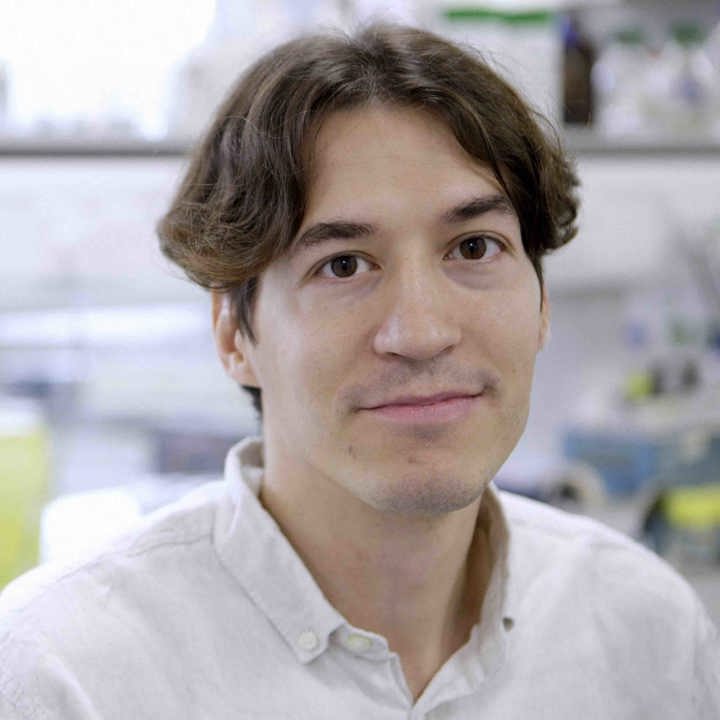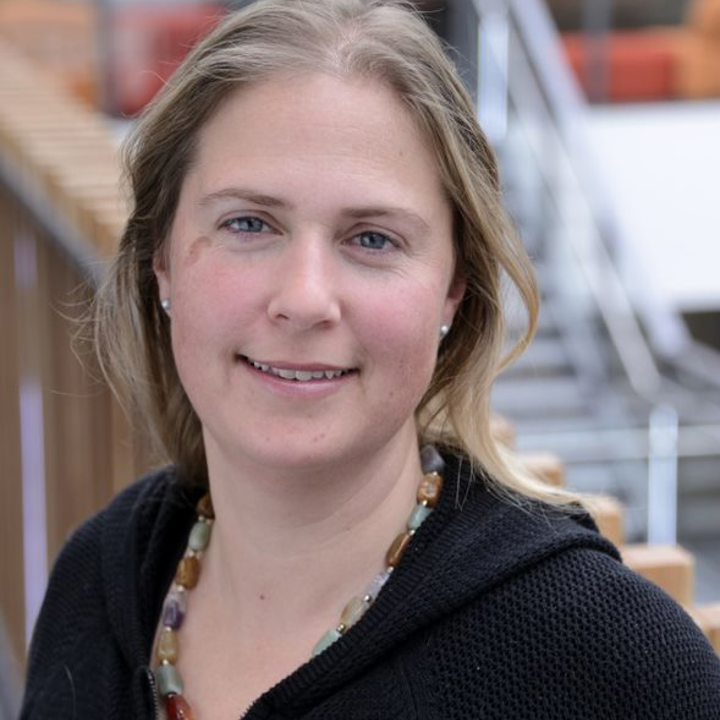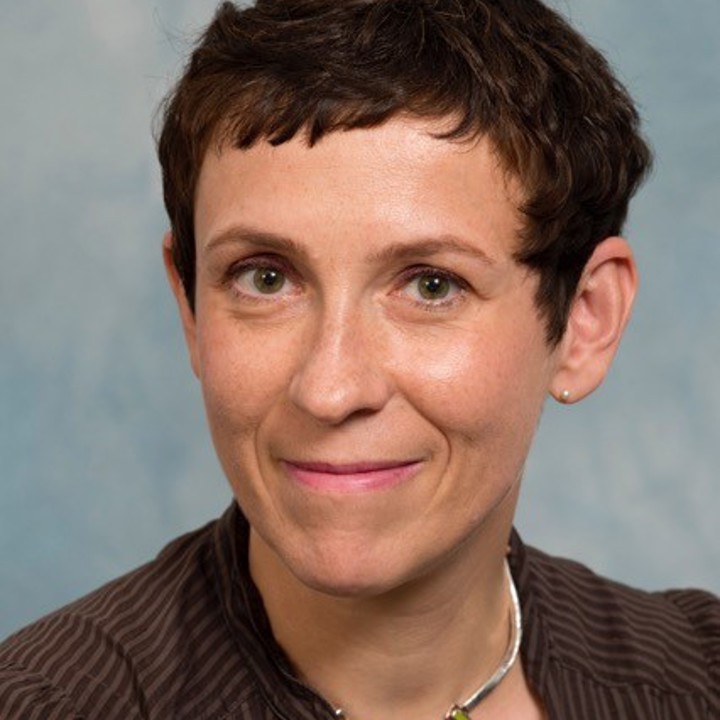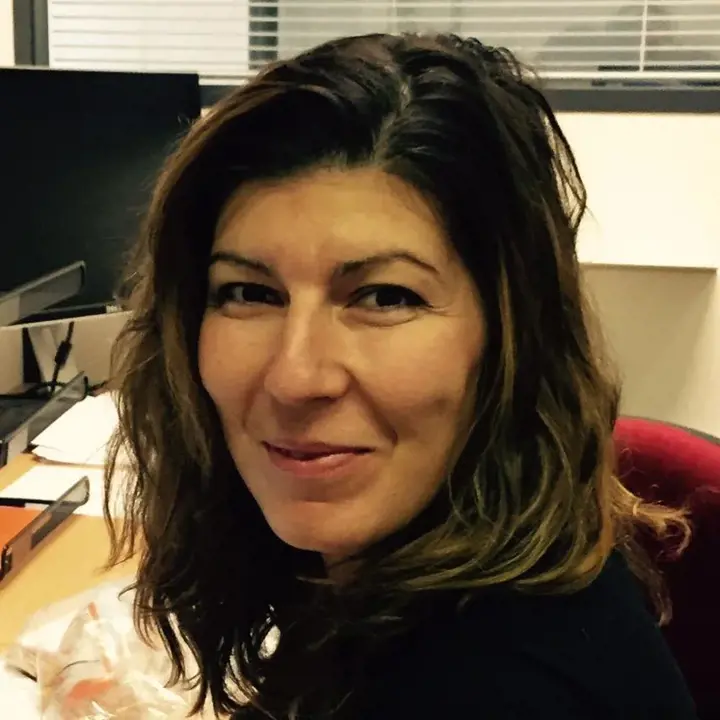
The GlaxoSmithKline Award
The GlaxoSmithKline Award is given in recognition of research leading to new advances in medical science and is made in respect of research carried out in the UK or the Republic of Ireland during the 7 years preceding the date of nomination.
The award is made every 2 years and is specifically intended to recognize meritorious research by mid-career biochemists in the field of biochemistry related to medicine.
Announcing our 2026 Award winners
Congratulations to Professor Doryen Bubeck (Imperial College London)!
Find out more about Doryen below
The recipient is given:
- £2,000 prize money
- A glass sculpture (designed and produced by the sculptor Katharine Dowson)
- The opportunity to present a lecture at a Society event or webinar
- An invitation to submit an article to one of our journals, with any fees waived
Eligibility criteria:
- Awarded biennially
- Awarded for research leading to new advances in medical science
- Nominees are typically mid-career, within 20 years of receiving their highest qualification
- The research should have been carried out in the UK or Republic of Ireland
- Nominees can be either international or UK based
- This award is only open to individuals
Please note that career breaks are taken into consideration for the GlaxoSmithKline Award. A career break is considered as any period of time where the candidate is out of work, for reasons including, but not limited to, redundancy, maternity leave, paternity leave, shared parental leave or adoption leave, extended leave to perform a carer role, long-term illness, disruptions caused by the Covid-19 pandemic, and/or as a consequence of relocation. If the candidate has taken a career break for maternity leave or shared parental leave, eligibility for The GlaxoSmithKline Award will be extended by 12 months per child.
If you have any queries regarding the eligibility criteria for an award, please contact the Awards Team.
The Awards Committee will consider the following aspects of all nominations for The GlaxoSmithKline Award as appropriate:
- Originality of research
- Impact and scope of research
- Quality of outputs – publications and/or patents and/or software
- Commitment to build, support, and nurture future talent e.g., mentorship
- Other indicators of esteem demonstrated by the nominator

Upcoming Award Lecture
Doryen Bubeck will present her Award Lecture at the Membrane Proteins Conference between 7-9 April 2026 in Birmingham.
Register now!Contact us
For further information please get in touch with the Awards department.
Related content
5 itemsRecipients
Doryen Bubeck
Doryen Bubeck

The GlaxoSmithKline Award will be presented to Professor Doryen Bubeck in 2026. Doryen is a Professor of Structural Immunology at Imperial College London and a Satellite Group Leader at the Francis Crick Institute. After a B.Sc. at Rensselaer Polytechnic Institute, she was awarded a doctoral fellowship from the National Science Foundation to pursue a PhD in Biophysics at Harvard University. She then moved to the University of Oxford to work with Professor Yvonne Jones under an EMBO postdoctoral fellowship and a subsequent fellowship from Cancer Research Institute. During this time, she developed a broad training in structural biology and a fascination with membrane biophysics which lay the foundation for her independent research career at Imperial College London. In 2012 she was appointed as a Lecturer in the Department of Life Sciences and was awarded a Career Establishment Award from CRUK to start her research group. She was promoted to Senior Lecturer in 2017, Reader in Structural Immunology in 2021 and Professor of Structural Immunology in 2023.
Her research explores fundamental mechanisms in immunity and how pathogens hijack cellular pathways during infection. Using cryo electron microscopy she discovered molecular drivers underpinning assembly of the complement membrane attack complex, an immune pore that directly kills bacteria. By developing and applying novel model membrane systems in structural biology, she showed how human cells are protected from damage by the pore when the immune system switches on.
Doryen said: “I’m truly honoured to receive the Biochemical Society’s GlaxoSmithKline Award for my research in structural immunology. It recognises the innovative approaches of my team and strengthens our dedication to tackling the most important questions in biomedical research."
Ellie Tzima
The GlaxoSmithKline Award will be presented to Professor Ellie Tzima in 2024. Ellie has been a Wellcome Senior Fellow in Biomedical Sciences and Professor of Cardiovascular Science at the Radcliffe Department of Medicine and the Wellcome Centre for Human Genetics at the University of Oxford since 2015. Ellie was Assistant and Associate Professor at the University of North Carolina at Chapel Hill from 2005-2015. Ellie was an AHA-postdoctoral fellow in Martin Schwartz’s laboratory at the Scripps Research Institute (La Jolla) from 2000-2004, working on endothelial mechanotransduction, and a Senior Postdoctoral Fellow in Paul Schimmel’s laboratory investigating cell signalling activities of aminoacyl tRNA-synthetases. Ellie has been funded by major grants from the NIH, Wellcome, BHF and MRC, served as Director of Graduate Studies, and was on the Editorial Board of Circulation Research and ATVB. She was a recipient of an American Heart Association Established Investigator Award, Ellison Medical Foundation Scholar in Aging and a member of several grant panel reviewing committees.
Together with a talented and enthusiastic team of students and postdocs, Ellie investigates how cells sense and respond to mechanical forces and the role of mechanotransduction in homeostasis and pathology.
On winning The GlaxoSmithKline Award for 2024, Ellie said: "I am humbled and honoured to receive this award. It is a testament to the wonderful people who have been part of my journey and the stimulating collaborations and incredible support I have had from mentors, family and friends over the years."
Ellie presented her Award Lecture at the 90th Harden Conference: European Cytoskeletal Forum: BSCB–Biochemical Society 2024 Cell Migration between 15-18 April 2024.
Ivan Ahel
Ivan Ahel

The 2022 GlaxoSmithKline Award was presented to Dr Ivan Ahel. Dr Ahel is a Senior Wellcome Trust Research Fellow at the Sir William Dunn School of Pathology, University of Oxford. Ivan obtained his MSc in Biology at the University of Zagreb, Croatia in 2000, before undertaking a PhD with thesis work carried out at Yale University in Prof Dieter Söll’s group between 2000 and 2003. In 2004, Ivan joined the Cancer Research UK, London Research Institute as a postdoctoral Fellow in Dr Stephen West’s laboratory investigating novel DNA repair protein factors. He was appointed in 2009 as a Junior Group Leader at the Paterson Institute for Cancer Research in Manchester, before moving to the Sir William Dunn School of Pathology, in 2013. General interest of Ivan’s laboratory centres on the basic cellular mechanisms underlying genome stability and the signalling mediated by the poly(ADP-ribose) polymerase (PARP) family of enzymes. Ivan’s laboratory has been funded by major grants from the Wellcome Trust, Cancer Research UK, Biotechnology and Biological Sciences Research Council and Ovarian Cancer Research Fund Alliance. Since 2012, Ivan is a member of the EMBO Young Investigator Programme and he is also recipient of the prestigious 2013 Cancer Research UK Future Leaders in Cancer Research Prize.
Ivan said: “I am honoured to be the recipient of the Biochemical Society’s GlaxoSmithKline Award. This award also recognizes the fantastic work of my laboratory members and collaborators, and greatly stimulates us to advance our research.”
Ivan presented his Award Lecture 'ADP-ribosylation signalling in health and disease' as part of the Biochemistry Focus webinar series. View the recording.
Read Ivan's article published in the Biochemical Journal - Beyond protein modification: the rise of non-canonical ADP-ribosylation
Sarah Teichmann
Sarah Teichmann

The 2020 GlaxoSmithKline Award was presented to Dr Sarah Teichmann of the Wellcome Sanger Institute, UK.
Sarah is Head of Cellular Genetics at the Wellcome Sanger Institute. Her work focuses on deciphering the immune system with genomics and bioinformatics approaches. She co-chairs the international Human Cell Atlas Consortium together with Aviv Regev (Broad Institute). Sarah did her PhD at the MRC Laboratory of Molecular Biology, Cambridge, UK with Dr Cyrus Chothia, FRS and was a Beit Memorial Fellow at University College London with Professor Dame Janet Thornton, FMedSci, FRS. She started her group at the MRC Laboratory of Molecular Biology in 2001. In 2013, she moved to the Wellcome Genome Campus in Hinxton, Cambridge, jointly with the EMBL-European Bioinformatics Institute and the Sanger Institute. In 2016 she became Head of the Cellular Genetics Programme at the Sanger Institute. Sarah is also a Director of Research in the Cavendish Laboratory, University of Cambridge and Senior Research Fellow at Churchill College. Sarah is an EMBO member and a Fellow of the Academy of Medical Sciences, and her work has been recognized by a number of UK and international prizes, including the Biochemical Society Colworth Medal in 2011.
Sarah said: “I am deeply honoured to be awarded The GlaxoSmithKline Award for 2020 by the Biochemical Society, which recognises the work by my talented team and our collaborators. Together we have driven forwards the application of single cell genomics and computation to human tissues, providing new insights into the molecular and cellular details of development and disease.”
Sarah presented her Award lecture on Friday 26 June 2020 as part of the Biochemistry Focus webinar series. View the recording.
Read Sarah's article published in the Biochemical Journal - Cell Atlas technologies and insights into tissue architecture
Anne Bertolotti
Anne Bertolotti

The 2018 GlaxoSmithKline Award was awarded to Anne Bertolotti from the Laboratory of Molecular Biology of the Medical Research Council in Cambridge. Anne has discovered major components of protein quality control systems in cells. These systems represent the cellular defence against misfolded proteins that accumulate in devastating diseases, such as Alzheimer’s, Parkinson’s or Huntington’s disease.
Anne has made outstanding contributions to our understanding of the molecular mechanisms underpinning neurodegenerative diseases and discovered strategies to enhance protein quality control systems for possible treatment of neurodegenerative diseases. One of the strategies consists of selective inhibition of a phosphatase, an important discovery because phosphatases were thought to be undruggable. The discovery of selective phosphatase inhibitors from Anne’s lab represents a huge advance for basic and medical science with a transformative potential for a group of diseases for which no treatment exists so far.
Read Anne's article published in Biochemical Society Transactions - The split protein phosphatase system.
Of winning the GlaxoSmithKline Award, Anne said “The award came as a surprise, on an early morning whilst I was visiting a dear friend and colleague in San Francisco. It is a great honour to join the list of distinguished awardees and a wonderful feeling to have our work recognized in this way. The work recognized by the award is the result of a team effort and my heart is with my lab members, past and present who have fearlessly joined me to explore the unexplored.”
Anne presented her award lecture at the Society conference ‘The Dynamic Cell III’ on 19-21 March 2018 at the Manchester Conference Centre.
Charles Swanton
Charles Swanton

The 2016 GlaxoSmithKline Award was presented to Charles Swanton, of Cancer Research UK’s London Research Institute, for his work on cancer heterogeneity which has had a huge impact in the field with far reaching and important implications to future approaches to cancer therapy.
Charles presented his GlaxoSmithKline award lecture on 17 November 2016 at Charles Darwin House, London, UK.
Read Charle's article published in Biochemical Society Transactions - Constraints in cancer evolution.
Juan Martin-Serrano
Juan Martin-Serrano

Andrew Jackson
Andrew Jackson

Gideon Davies
Gideon Davies

Stephen Jackson
Stephen Jackson

Seamus Martin
Seamus Martin

David A. Lomas
David A. Lomas


